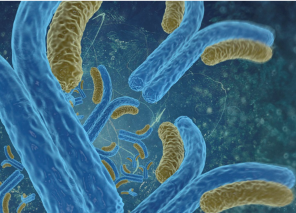
Chromatin remodeling is a component of epigenetic changes, which is the result of changes in gene expression rather than changes in the gene sequence itself. Chromatin remodeling refers to the control of gene expression by altering the localization and the spatial structures of nucleosomes. When the chromatin conformation becomes loose from tight, chromatin DNA can be accessed by various regulatory factors such as transcription factors and chromosomal regulatory proteins, resulting in gene transcription. Therefore, chromatin remodeling is an important process for regulating crucial physiological functions and maintaining the stability of the intracellular environment.
The basic mechanism of chromatin remodeling depends on three dynamic properties of nucleosomes, including reconstruction, enzyme-induced covalent modification, and relocalization. Regarding reconstruction, standard histones on nucleosomes can be replaced by histone variants. Histone modification (through methylation/demethylation, acetylation/deacetylation, phosphorylation, ubiquitination, etc.) is another important aspect of chromatin remodeling. Moreover, there are many chromatin remodeling complexes in the nucleus. They use ATP energy to promote nucleosome movement and histone exchange and play a significant role in controlling chromatin structure and regulating gene transcription. According to their structure and function, chromatin remodeling complexes can be classified into four families: SWI/SNF, CHD, ISWI, and INO80.
Creative BioMart provides various antibodies against chromatin remodeling factors and histone modifications to help you perform epigenetics research from the perspective of chromatin remodeling.
Chromatin Remodeling Antibodies Products ListUSA
Enter your email here to subscribe.
Follow us on

Easy access to products and services you need from our library via powerful searching tools